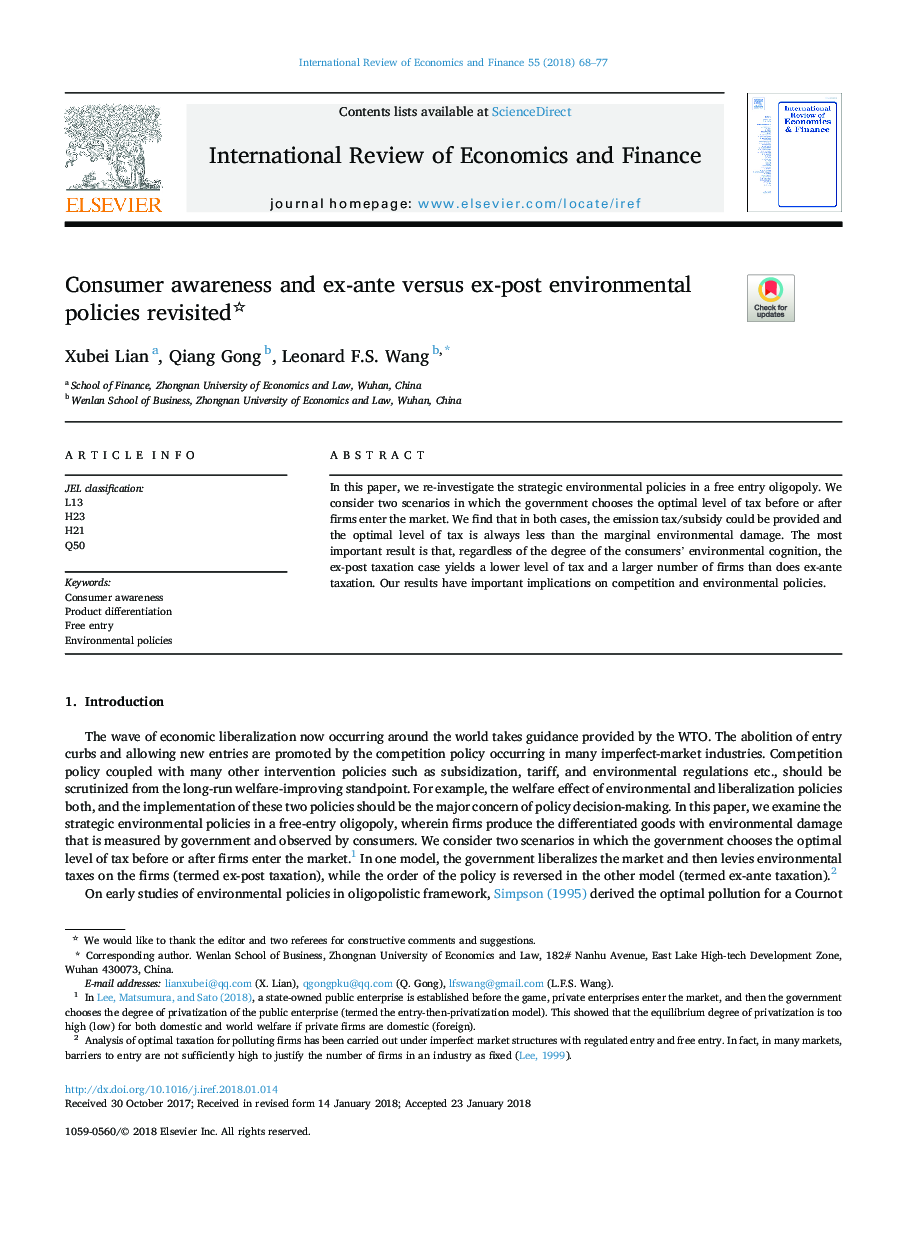| Article ID | Journal | Published Year | Pages | File Type |
|---|---|---|---|---|
| 7355417 | International Review of Economics & Finance | 2018 | 10 Pages |
Abstract
In this paper, we re-investigate the strategic environmental policies in a free entry oligopoly. We consider two scenarios in which the government chooses the optimal level of tax before or after firms enter the market. We find that in both cases, the emission tax/subsidy could be provided and the optimal level of tax is always less than the marginal environmental damage. The most important result is that, regardless of the degree of the consumers' environmental cognition, the ex-post taxation case yields a lower level of tax and a larger number of firms than does ex-ante taxation. Our results have important implications on competition and environmental policies.
Related Topics
Social Sciences and Humanities
Economics, Econometrics and Finance
Economics and Econometrics
Authors
Xubei Lian, Qiang Gong, Leonard F.S. Wang,
